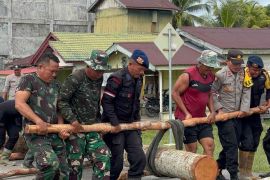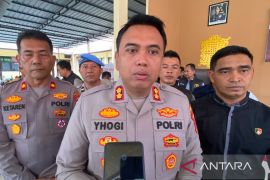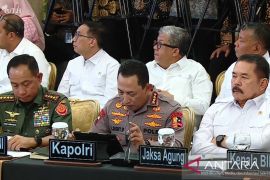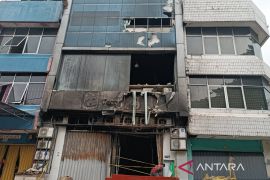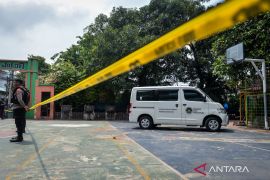"Thus, Densus 88 did not conduct a wrongful arrest as the anti-terror personnel had credible evidence against Siyono," the police spokesman Inspector General Anton Charliyan said.Jakarta (ANTARA News) - The Indonesian police confirmed here, Tuesday, that Siyono was not a victim of wrongful arrest as its anti-terror squad (Densus 88) had credible evidence to take him into custody, a police spokesperson stated.
"Thus, Densus 88 did not conduct a wrongful arrest as the anti-terror personnel had credible evidence against Siyono," the police spokesman Inspector General Anton Charliyan remarked.
Siyono, arrested by the personnel of Densus 88 on March 9, 2016, was allegedly believed to be the leader of Jamaah Islamiyah in Klaten, Central Java, and was suspected of involvement in unlawful activities.
Charliyan noted that Siyono, who died in the custody of Densus 88, was captured following the arrests of nine people over allegations of being members of Jamaah Islamiyah in May 2014.
The police also arrested three other suspects identified as AW alias TG, BR, and DN.
"These three suspects, particularly AW, confessed that Siyono had a weapon," he revealed.
The Densus 88 personnel then raided the hideout of Siyono. However, he died in the custody of the counterterrorism unit.
Siyonos family members, including his wife Suratmi, have been demanding justice following his custodial death.
In connection with Siyonos case, Indonesian Police Chief General Badrodin Haiti would likely be summoned by the House of Representatives (DPRs) Commission III overseeing legal affairs, a senior legislator, Desmond Junaidi Mahesa, stated.
Mahesa, deputy speaker of DPRs Commission III, said the Houses working committee on law enforcement would not only discuss the Siyoso case but also cover the budget for Densus 88.
He said, at the Houses previous hearing with Police Chief General Haiti, one of the topics discussed was related to a request for allocating additional budget for Densus 88.
Three years before the latest Siyono case, The Guardian, an influential publication in the United Kingdom, had exposed the violent acts of Densus 88 against suspected terrorists.
In a news story titled, "Indonesias US-Funded Anti-Terror Police Accused of Fueling Terrorism," The Guardian reported that Densus 88 had a tendency to terminate terror suspects rather than trying to capture them alive.
As a result of such tactics, it becomes difficult to end the cycle of violence, Haris Azhar, chairman of the Commission for Missing Persons and Victims of Violence, was cited by The Guardian as stating that "it seems the polices brutality has contributed to the growth of terrorism in Indonesia."(*)
Editor: Heru Purwanto
Copyright © ANTARA 2016
